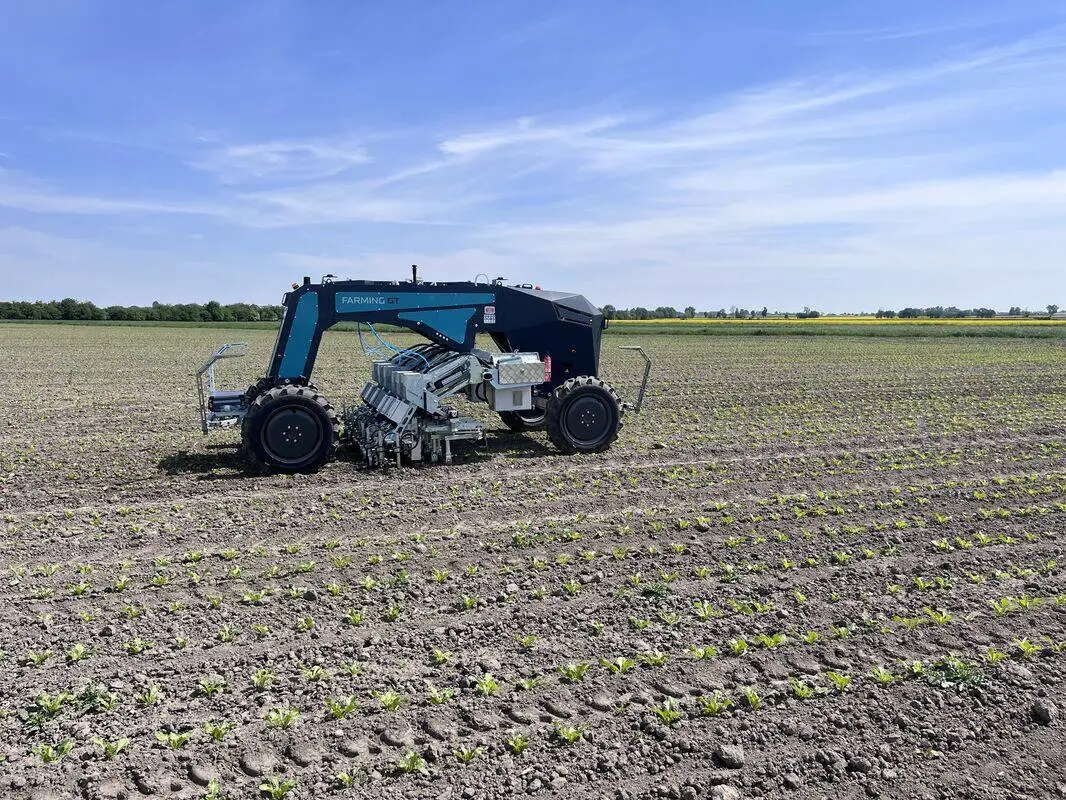Organic farming often relies on hand‐weeding, an intensive process as workforce becomes scarce and farmers need a reliable tool that can remove weeds without chemicals, preserve soil health, and keep up with their schedules. The FarmingGT robot was developed by TEF Agrifood Network to meet these needs by offering fully autonomous weeding that works day and night across varied terrain, and can handle up to 10 hectares in a single day using electric all‐wheel drive with extreme precision.
The FarmingGT AV easily connects to a smartphone app for straightforward controls, requires no special seeding patterns or chemical inputs, and adapts to row widths for more than 60 different crops. As it moves, soil compaction is kept to a minimum, protecting soil structure and encouraging healthy root development. It can be transported between fields and deployed without extensive setup.
The Austrian Josephinum Research (JR) Centre is one of the key partners of this initiative, bringing in its expertise in agricultural technologies. Josephinum Research led on-farm trials at partner sites, monitoring the robot’s performance in real-world conditions. Their agronomic expertise helped fine-tune the machine’s settings for different soil types and crop stages, ensuring reliable weed removal, ultimately delivering a tool tailored to organic farmers’ workflows. Operational costs have fallen as manual weeding crews are reduced or redeployed, and overall weeding throughput has risen, allowing farmers to expand their organic acreage without a proportional rise in labour costs.
FarmingGT’s performance is different from what one would expect. In fact, instead of relying on satellite positioning, the robot uses on-board sensors and cameras to distinguish between crop rows and weeds. This vision-based guidance system ensures that the robot moves with extreme precision, preserving valuable seedlings. Its electric drivetrain runs quietly and at low cost while allowing continuous operation regardless of weather, day or night. Soil structure surveys on trial sites showed no significant increase in compaction after repeated robot passes.
The research team plans to expand the FarmingGT’s reach into other European regions beyond Central Europe, including Spain, Germany and Portugal. Josephinum Research will work further to focus on adapting the system to new crops and refining the software for even smoother user interaction. The project received co-funding from the European Union’s Digital Europe Programme, reflecting a shared interest in making sustainable, chemical-free farming both practical and affordable. By combining reliable mechanics, intuitive controls, and precise AI-driven weeding, the project offers a path toward more resilient organic farming, and close collaboration between technology developers and agricultural researchers can yield tools that directly address farmers’ challenges.
More info available on TEF Agrifood website.
